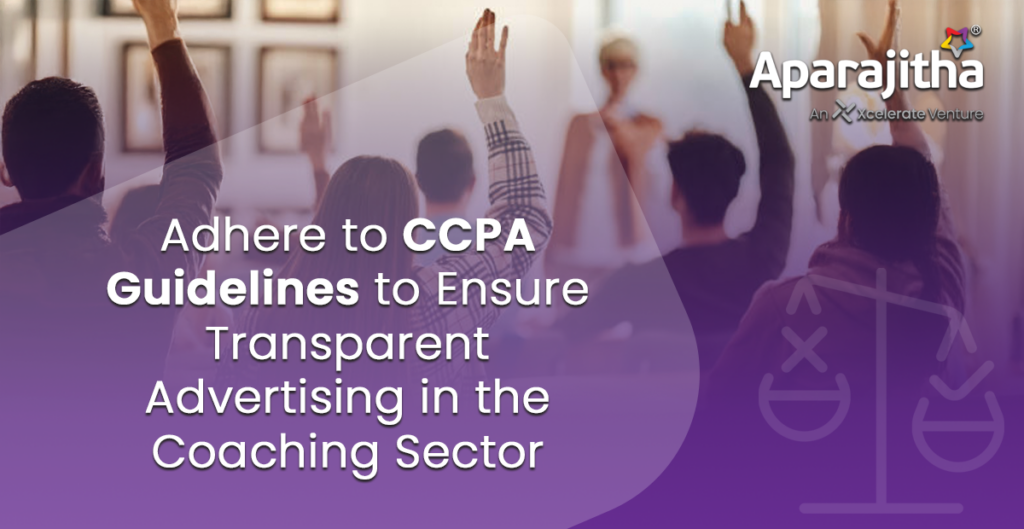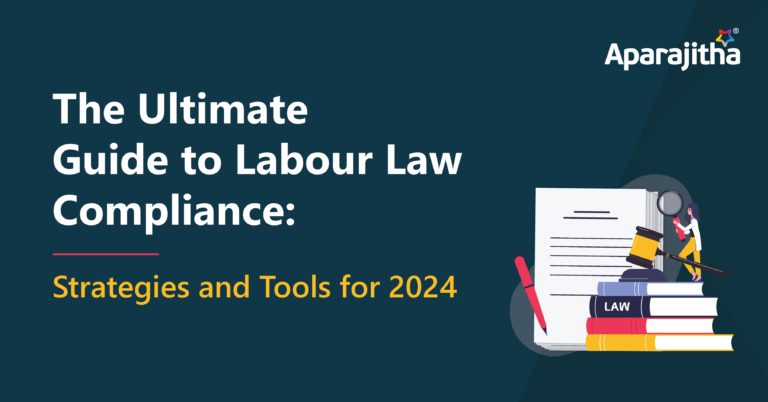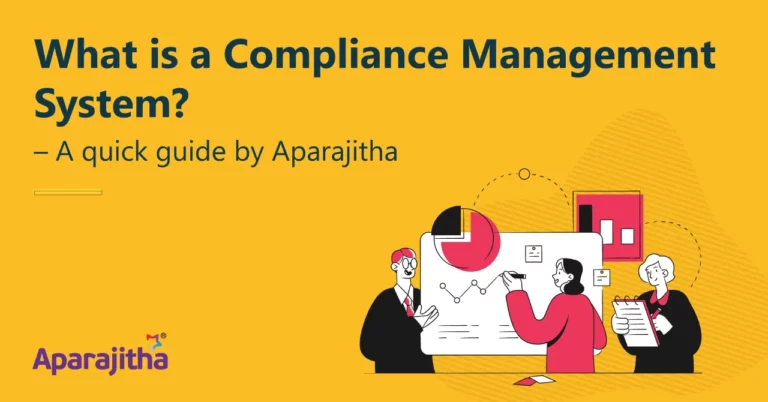The Central Consumer Protection Authority (CCPA) has issued new guidelines to combat misleading advertisements in the coaching sector. These guidelines, effective from November 13, 2024, aim to curb false claims made by coaching centers regarding course details, faculty credentials, success rates, and job guarantees.
Whom shall it apply?
- any person including an endorser engaged in coaching sector
- making advertisements of all forms
- providing coaching to more than 50 students
What does the guidelines specify?
Persons making advertisement shall be obliged to take care of the following:
- Disclosure of candidature of the outperformed students enrolled previously with the center along with their details (including ranking, courses taken, photo, etc.,) after obtaining their written consent
- Font of disclaimer and other important information
- Services and infrastructure of the center
- Necessary approval from competent authorities
- Maintain transparency and provide accurate details
- Partnering with National Consumer Helpline
What constitutes misleading advertisement?
- Making false claims on
- Course related details–courses offered, duration, credentials of trainers, fee policy and refund
- Standard or quality
- Guaranteed Job market (salary increase, job promotion, success rates and job security)
- Creating impulse on public to make hasty decisions
- Indulging in unfair trade practice or misleading advertisement
Contextual clarifications:
- Coaching center – a center established for the purpose of providing coaching
- Coaching in any form
- includes – academic support, imparting education, guidance, instructions, study programmer or tuition or any other activity of similar nature
- excludes – counselling, sports, dance, theatre and other creative activities
- Other terms shall have the same meaning as detailed in Consumer Protection Act 2019 and Guidelines for Prevention of Misleading Advertisements and Endorsements for Misleading Advertisements, 2022
What Do the Guidelines Specify?
The guidelines require coaching centres and those involved in making advertisements to ensure the following:
- Disclosure of Outperformed Students: If using students’ success stories, centers must disclose details of students who have outperformed, including their rankings, courses taken, and photos, after obtaining written consent from these students.
- Clear Disclaimers: Important information, including disclaimers, must be displayed in an easily readable font.
- Transparency about Services and Infrastructure: Centers must accurately describe the services and facilities they offer, ensuring no exaggeration of their infrastructure.
- Approval from Competent Authorities: Coaching centers must ensure that they have the necessary approvals from relevant authorities to operate and provide courses.
- Partnering with National Consumer Helpline: Coaching centers are encouraged to cooperate with the National Consumer Helpline for resolving consumer complaints.
- Maintain Transparency: Coaching centers must ensure that all claims about their services, faculty, success rates, and other offerings are accurate and verifiable.
What Constitutes a Misleading Advertisement?
The guidelines identify various practices that can be considered misleading:
- False Claims on Course Details:
- Misleading information about the courses offered (e.g., course duration, content, trainers’ credentials, fee policies, refund terms).
- Claims about the standard or quality of courses offered without substantiation.
- Job Market and Success Rates:
- False claims about job guarantees, such as salary increases, job promotions, success rates, or job security.
- Inducing Impulsive Decisions:
- Creating pressure on the public to make hasty decisions, such as using exaggerated claims or limited-time offers that are false or misleading.
- Unfair Trade Practices:
- Engaging in deceptive or unfair advertising methods to lure students without providing the services as promised.







